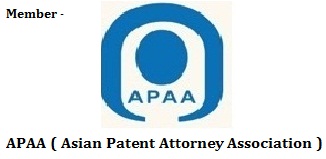AS 9100 Certification
The aircraft and aerospace industries are quickly embracing AS9100 as a means of improving quality and on-time delivery within their supply chain. Public demand for safety and reliability drives the need for product quality to approach near perfection. The only way to work towards perfection is to work through continuous improvement. Quality management systems in conjunction with third-party audits are integral to continuous improvement.
The AS 9100 family of standards is an ISO 9001 based standard with additions and interpretations specific to the aerospace industry with emphasis placed on areas deemed to have the greatest impact on safety, reliability and regulatory compliance for aerospace products.
Whether you are a stockist distributor, maintenance organization or manufacturer working within the aerospace sector, we can now provide you with the full range of consultancy certification services to AS/EN 9100, AS/EN 9110 and AS/EN 9120.
THE BENEFITS OF IMPLEMENTING AS 9100 CERTIFICATION: –
- Qualifications to be considered as an aerospace supplier
- Public recognition
- Internal validation
- Independent feedback to foster continual improvement
Certification to AS/EN 9100 offers benefits to suppliers that currently need to comply with more than one standard. This standard represents the harmonization of the aerospace quality management system standards sponsored by many of the world’s largest aerospace companies including Airbus Industries, The Boeing Company, General Electric, Pratt & Whitney and Rolls Royce.
This has significant benefits in helping reduce or eliminate multiple assessments with the additional benefits of reduction in disruption to the business, associated paperwork, and cost.
NABL Accreditation (ISO 17025)
What are the aims and objectives of NABL?
National Accreditation Board for Testing and Calibration Laboratories (NABL) is an autonomous body under the aegis of Department of Science & Technology, Government of India, and is registered under the Societies Act. NABL has been established with the objective to provide Government, Industry, and Society in general with a scheme for third-party assessment of the quality and technical competence of testing and calibration laboratories. Government of India has authorized NABL as the sole accreditation body for Testing and Calibration laboratories.
In order to achieve this objective, NABL provides laboratory accreditation services to laboratories that are performing tests/calibrations in accordance with NABL criteria based on an internationally accepted standard for laboratory accreditation ISO/IEC 17025. These services are offered in a non-discriminatory manner and are accessible to all testing and calibration laboratories in India and abroad, regardless of their ownership, legal status, size and degree of independence.
What is laboratory accreditation?
The concept of Laboratory Accreditation was developed to provide a means for third-party certification of the competence of laboratories to perform specific type(s) of testing and calibration.
Laboratory Accreditation provides formal recognition of competent laboratories, thus providing a ready means for customers to find reliable testing and calibration services in order to meet their demands.
Laboratory Accreditation enhances customer confidence in accepting testing/calibration reports issued by accredited laboratories. The globalization of the Indian economy and the liberalization policies initiated by the Government in reducing trade barriers and providing greater thrust to exports makes it imperative for Accredited Laboratories to be at an international level of competence.
Why is laboratory accreditation required?
Laboratory Accreditation provides formal recognition of competent laboratories, thus providing a ready means for customers to find reliable testing and calibration services in order to meet their demands.
Laboratory Accreditation enhances customer confidence in accepting testing/calibration reports issued by accredited laboratories. The society also needs to know the technically competent laboratory in fields such as Medical, Forensic, Food Testing, etc.
The globalization of the Indian economy and the liberalization policies initiated by the Government in reducing trade barriers and providing greater thrust to exports makes it imperative for Accredited Laboratories to be at an international level of competence.
What are the benefits of accreditation?
Potential increase in business is due to enhanced customer confidence and satisfaction. Savings in terms of time and money due to the reduction or elimination of the need for re-testing of products.
- Better control of laboratory operations and feedback to laboratories as to whether they have sound Quality Assurance System and are technically competent.
- Increase of confidence in Testing / Calibration data and personnel performing work.
- Customers can search and identify the laboratories accredited by NABL for their specific requirements from the directory of Accredited Laboratories.
- Users of accredited laboratories will enjoy greater access for their products, in both domestic and international markets, when tested by accredited laboratories.
What types of laboratories can seek accreditation?
The laboratories should be legally identifiable & appropriately registered. They can be a part of a big organization or an independent entity. NABL can provide accreditation to Laboratories undertaking any sort of testing or calibration in the specified fields: (1) Private or government laboratories; (2) Small operations to large multi-field laboratories; (3) Site facilities, temporary field operations, and mobile laboratories.


